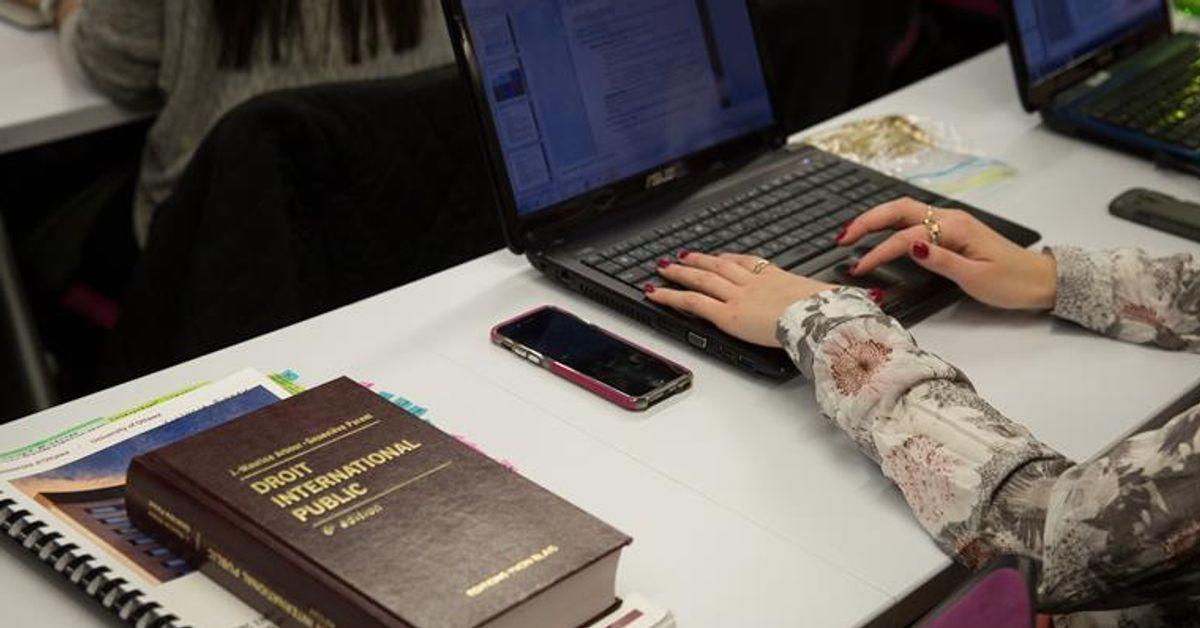
How much power do civil authorities have to impose measures to stop COVID-19?
Do we need to fulfill our contractual obligations in the face of such an event?
What laws apply to work from home, which many workers have been forced to adopt?
What legal obstacles could arise during the development and distribution of vaccines and other medication?
This is just a small sample of the legal questions that are being asked during the COVID-19 pandemic, the worst medical and health crisis the world has seen since 1918.
In response to the social need for discussions, debates, and answers to these questions, the Faculty of Law, Civil Law Section quickly mobilized to produce an online course. Entitled Enjeux sociojuridiques de la pandémie de COVID-19, the course will be offered during the 2020 Spring-Summer term.
“More than ever, legal scholars must be aware of, and respond to, the many social, legal and ethical issues that have arisen during this pandemic,” said Marie-Ève Sylvestre, dean of the Faculty of Law, Civil Law Section.
Some fifteen professors, each an expert in a different field of law, will explore the issues raised by the pandemic from their individual perspectives. They will tackle topics ranging from the World Health Organization’s declaration of a pandemic, to the powers of various levels of government to impose measures, to the role and authority of institutions charged with protecting public health.
Other topics will include: the role of artificial intelligence, new technologies, and criminal law in stopping COVID-19; the regulations on self-isolation and their effects on domestic violence; the rights of workers and their safety on the job; and how the pandemic affects food safety or contractual obligations.
“I think this is the right setting in which to ask such questions, to see what we already know, to determine what we can base ourselves on, and to ask ourselves what is most important in terms of our values. We know that life, health, and public safety are truly the priorities right now, along with freedom and freedom of movement, so we are trying to strike a balance between values at a time like this, which makes this course very interesting,” the dean added.

Mobilizing knowledge during a pandemic
Nearly half the professors in the Civil Law Section will take part in this pilot project.
“Given the circumstances (we are just now transitioning to distance learning), I expected a rather tepid response to this proposal. I was completely wrong. My colleagues were keen to participate. This testifies to the human need to create ties and respond with solidarity during this gloomy period of social distancing,” said Professor Sophie Thériault, who is vice-dean, academic at the Faculty of Law, Civil Law Section.
An innovative, multi-dimensional course
“We are used to discussing labour law or health law in isolation. The chance to address a legal question from many different directions, and to gain the perspectives of some fifteen experts in various fields, is really a unique and extraordinary opportunity,” said the dean.
Each expert will present a video clip, which will become available as each issue on the course schedule is addressed.
“To ensure consistency between lessons and student supported, we have recruited one of our top doctoral candidates, Andrea Talarico, to coordinate and facilitate the course. Her video clips will introduce the various topics and relate them to one another. She will also host a weekly discussion forum that will allow students and professors to more deeply explore the issues related to the various topics covered in the course,” said Thériault.
This course is open not only to undergraduate and graduate law students from the Ottawa area and beyond, but also to professionals. This virtual space for learning and discussion will provide a platform for an extensive exchange of ideas that will help provide answers to the questions currently being raised.
Hence, in addition to meeting social needs and fulfilling its educational responsibilities, the Faculty of Law, Civil Law Section seeks through this initiative to more fully engage with the community by providing answers to questions from the public.
Initially, Enjeux sociojuridiques de la pandémie de COVID-19 will only be offered in French. The course syllabus is available as a PDF. At this time, there is no limit on the number of students who can enrol in this course.
